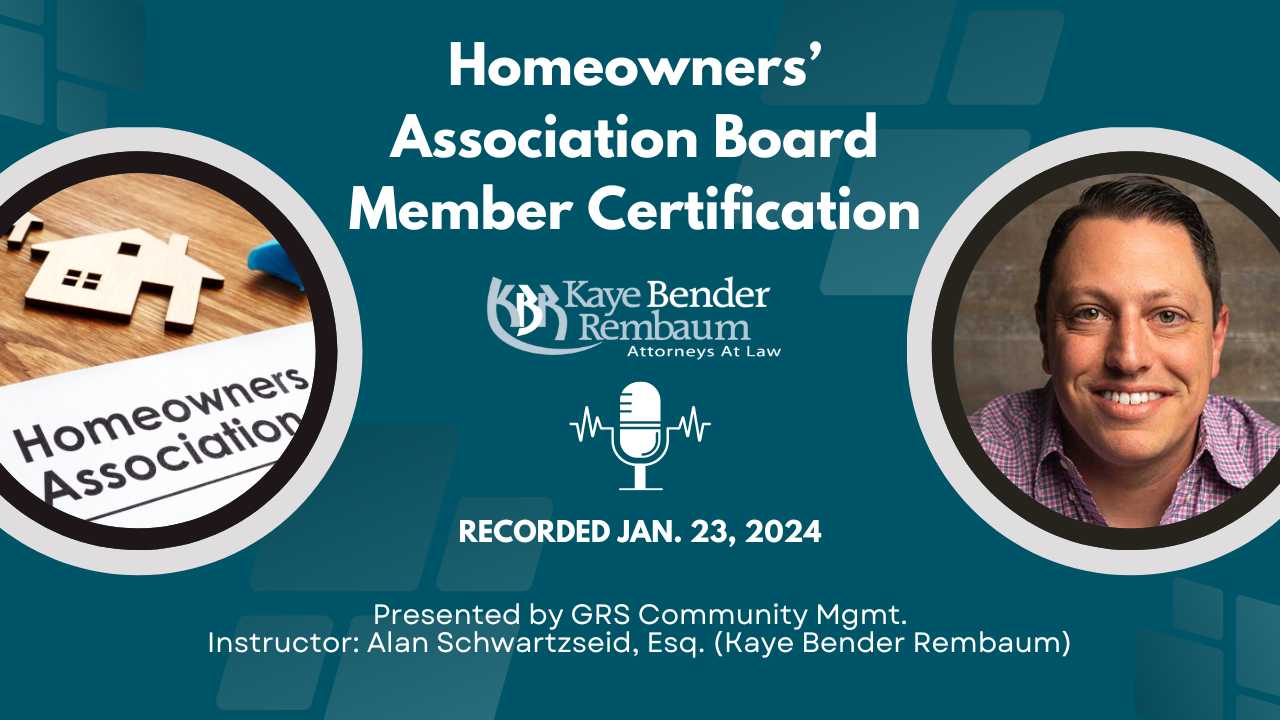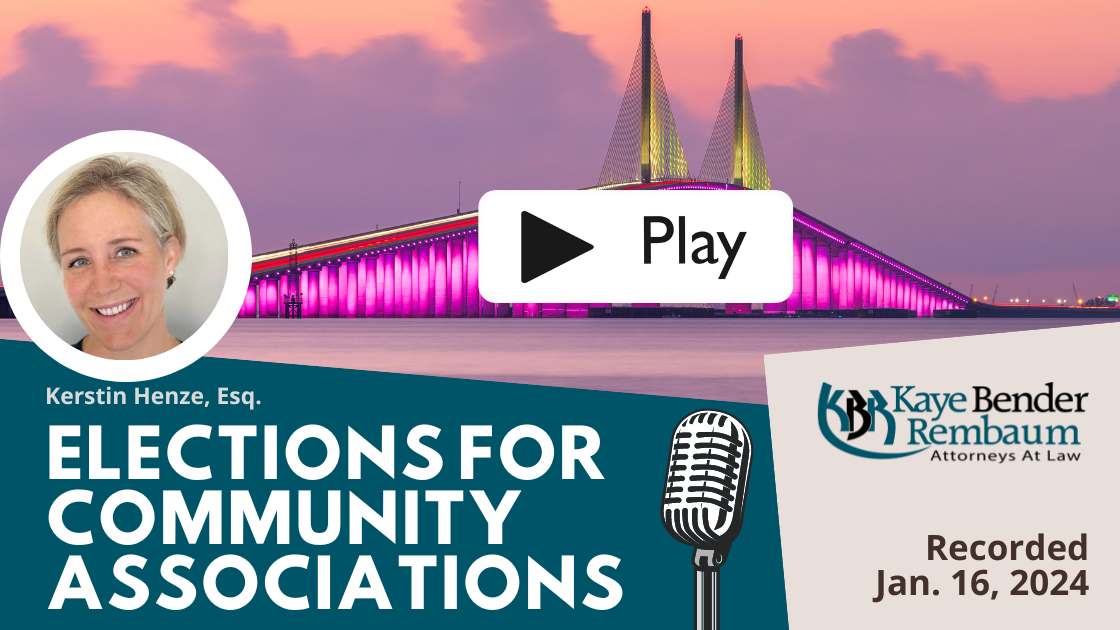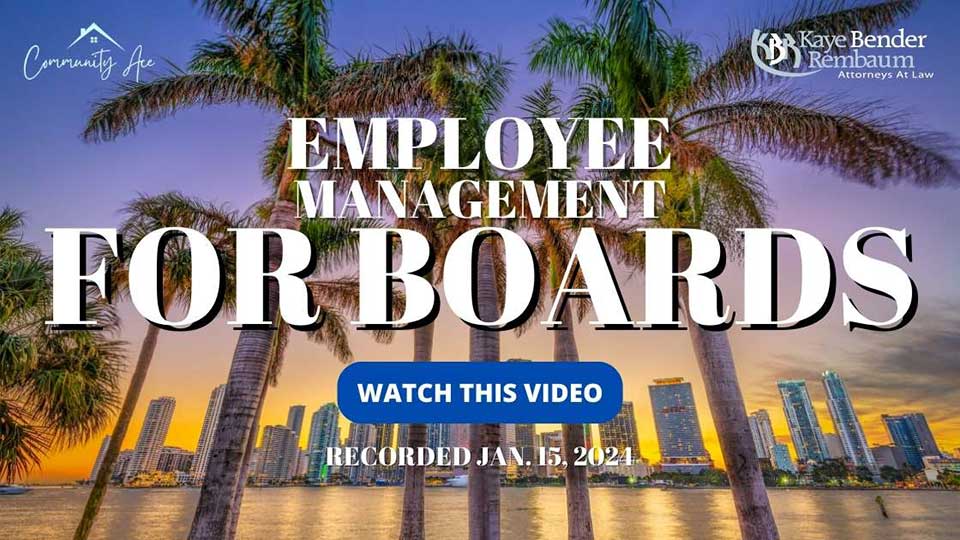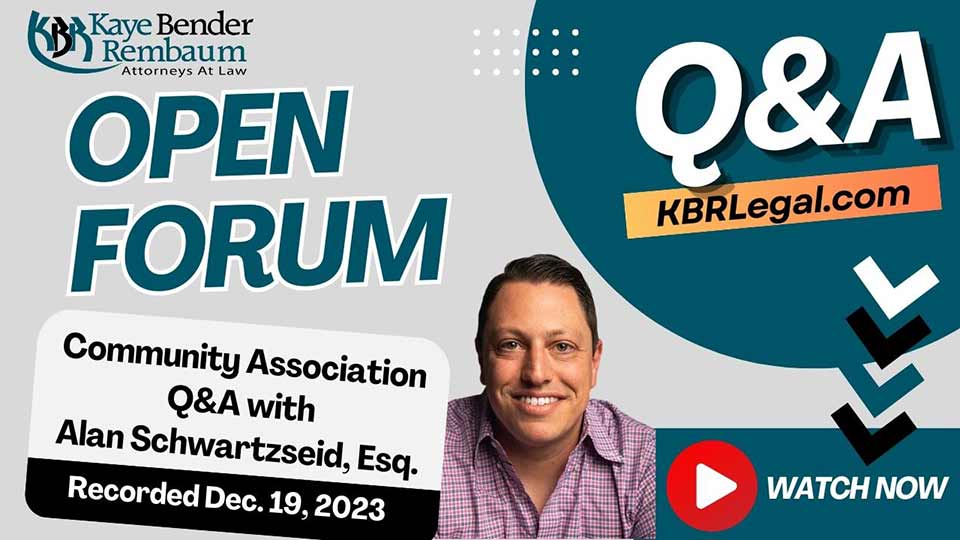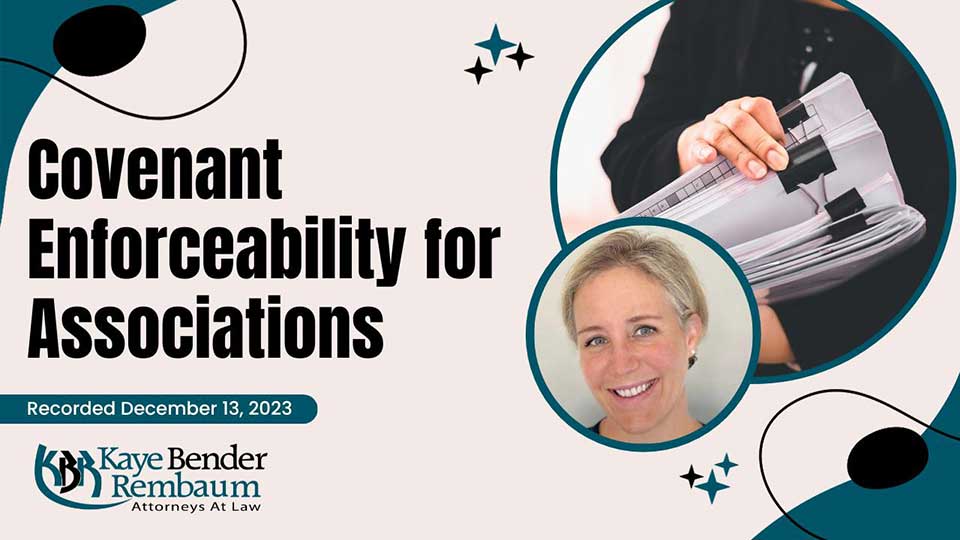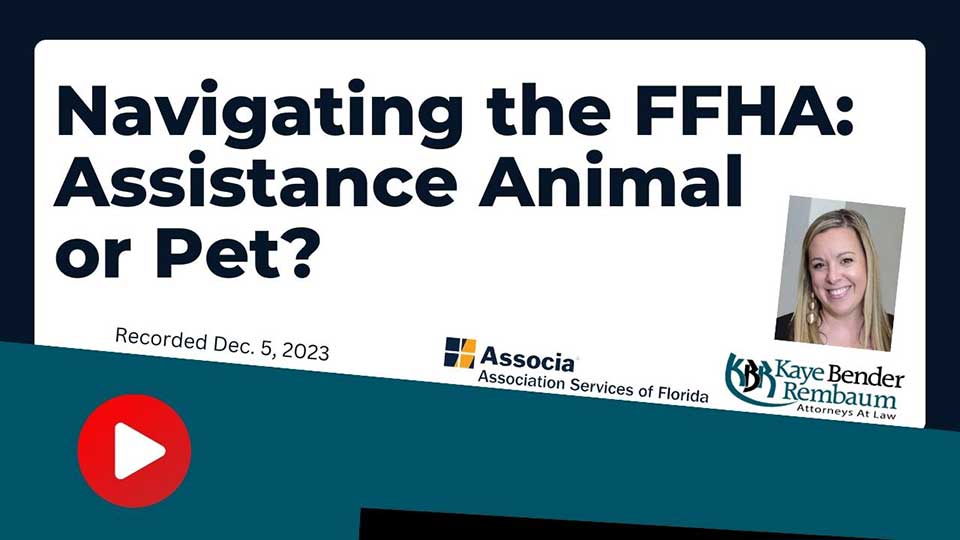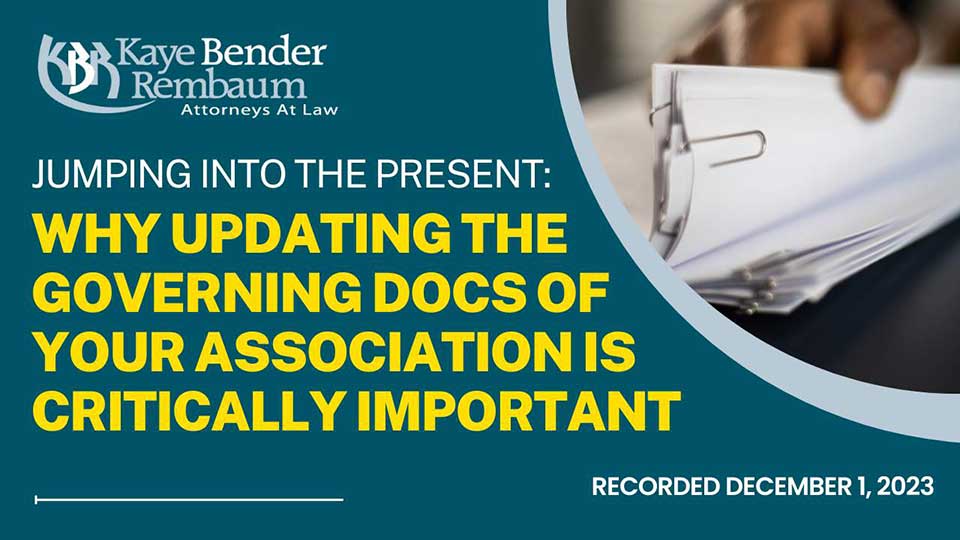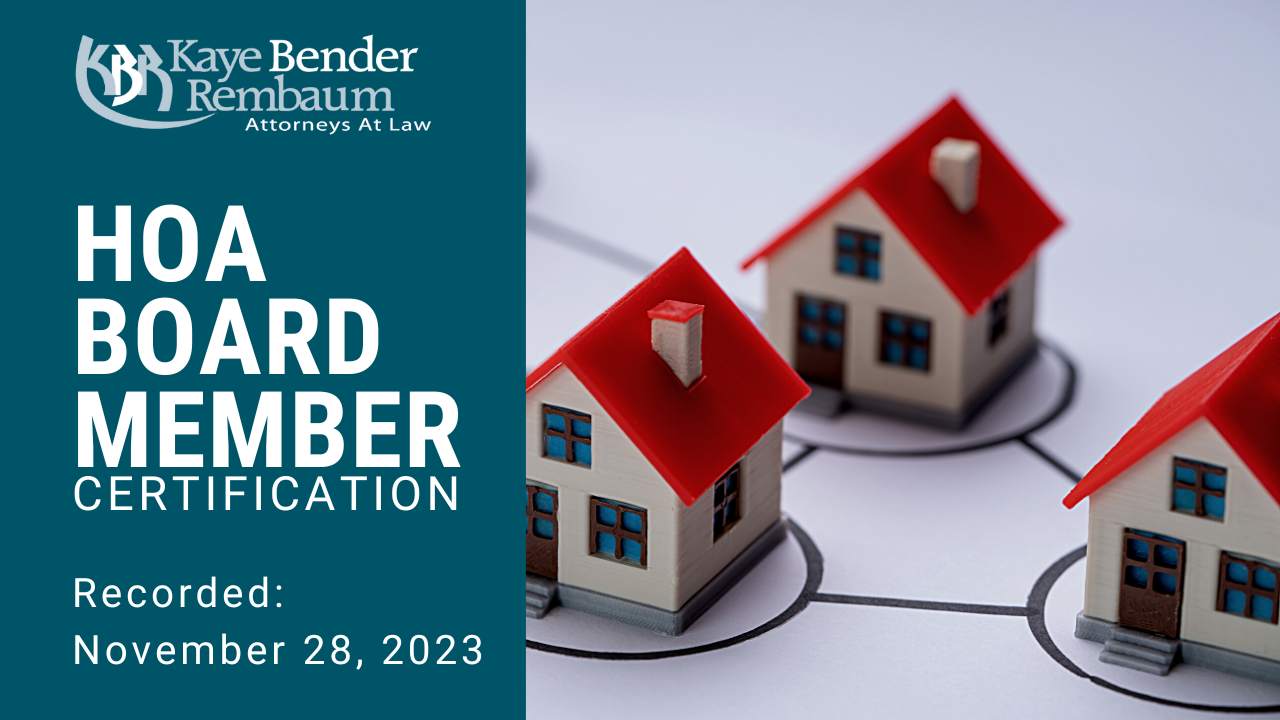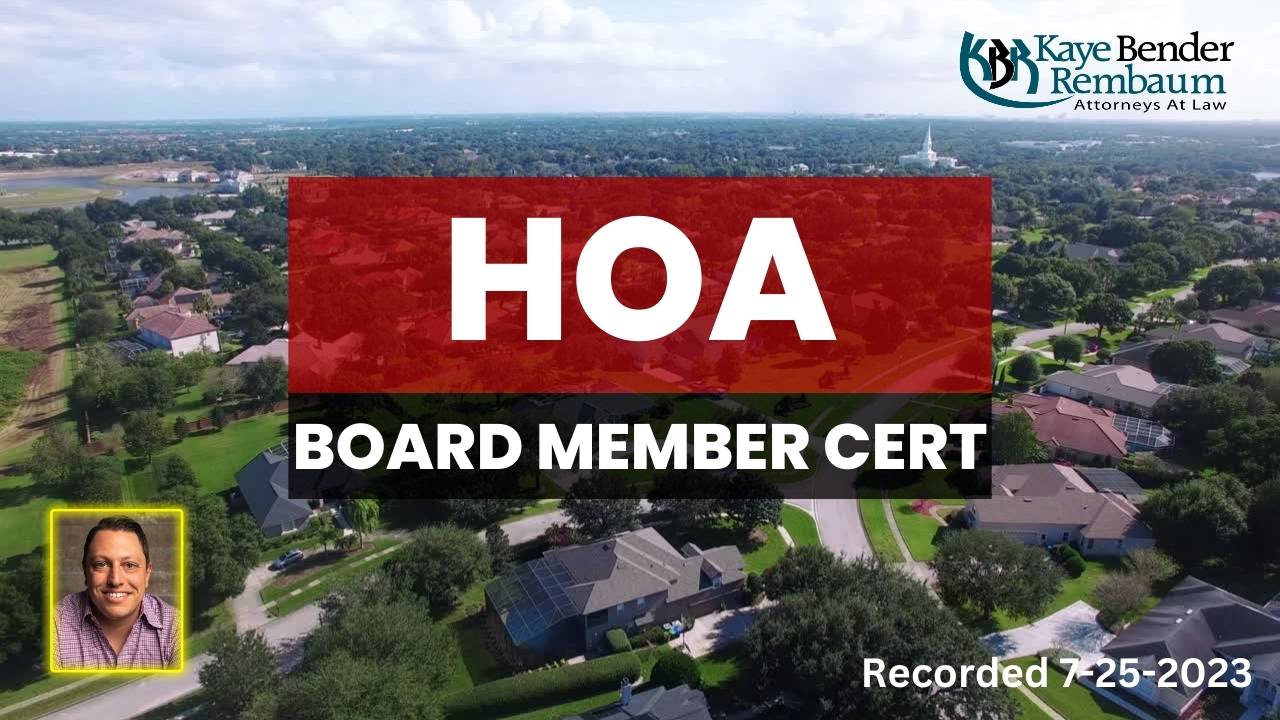**Important** Viewing this on-demand video WILL NOT satisfy Florida state requirements for new Board Members; NOR will this recorded version offer CEUs for CAMS. It is for informational purposes only and is not to be considered as legal advice. Should you have any questions, contact your association counsel.
Presented by GRS Management | Provided by Kaye Bender Rembaum Instructor: Alan Schwartzseid, Esq.
This webinar covers the essentials of HOA board membership, and is updated regularly to remain current with Florida legislative amendments. In addition, this webinar satisfies Florida’s requirement for new HOA board members. It also serves as an excellent refresher course.

